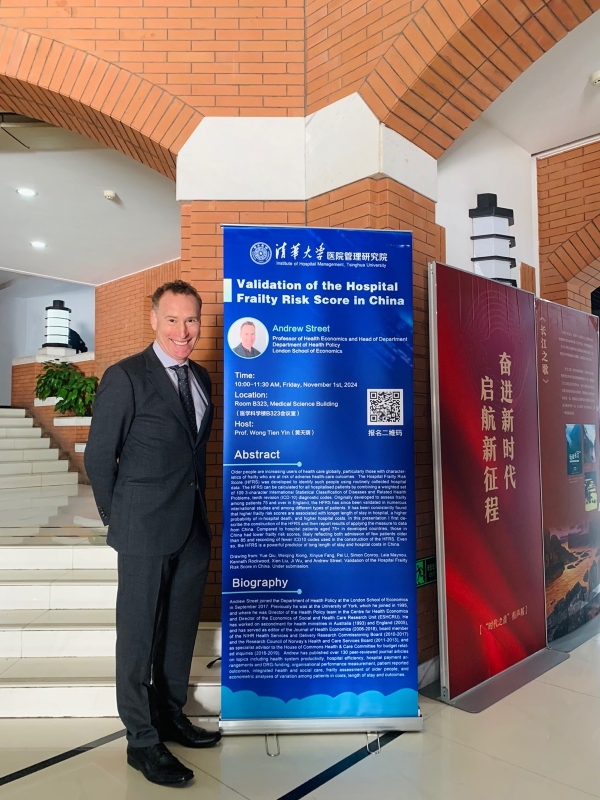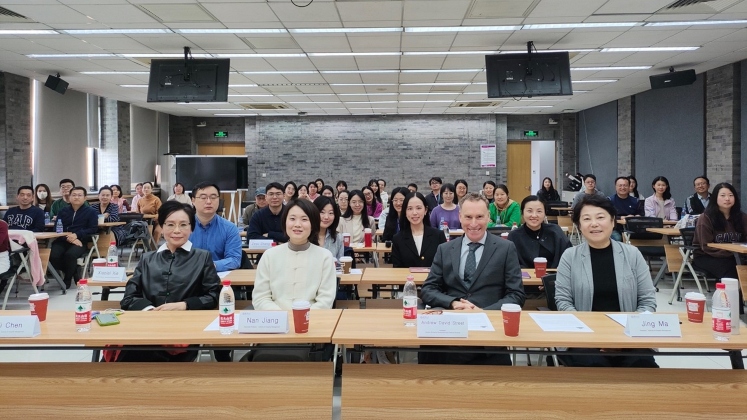Last year the International Strategy and Academic Partnerships team supported Prof. Andrew Street through the Global Research Fund so he could make progress on a significant project with fellow experts in China. In this interview, he tells us about his research, recent publication and future projects ↓

Could you tell us a bit about your research?
I have published over 130 peer-reviewed journal articles on topics including health system productivity, hospital efficiency, and integrated health and social care. I joined the Department of Health Policy in September 2017 and teach MSc courses in health economics, health policy and health system performance.
What attracted you to this particular area of research?
The health system is a major component of the economy, and we all need it at some point or another. It is important that care is available to those that need it, when they need it, and without causing them financial hardship. Health economics provides insight into the demands placed on the health care system, the changing nature of health care supply and delivery, the interactions between patients and providers of health care, and the performance and productivity of the health system. This helps ensure that money devoted to health care is spent wisely.
How will your research contribute to better society and policy outcomes?
One strand of my research has focused on identifying people most at risk of needing health care. Frailty is an important risk factor, especially among older people. As their frailty increases, people become less able to live their daily lives, are more likely to suffer injuries and falls, and are more likely to need support from families, society and our health and care systems.
Currently, we have no standard measures of frailty, making it difficult to manage this risk factor. I have therefore worked with colleagues to develop the Hospital Frailty Risk Score (HFRS), which can be calculated using routine diagnostic information. The HFRS has been validated in numerous international studies. It has been consistently found that higher frailty risk scores are associated with longer length of stay in hospital, a higher probability of in-hospital death, and higher hospital costs among older patients.

How did this particular project come about?
We wanted to assess the applicability of the HFRS in China, to see if the HFRS was able identify frailty risk among older people admitted to hospital. We also wanted to see whether it could predict their use of healthcare resources.
What initiated this collaboration?
Each year a group of students from the Institute for Hospital Management at Tsinghua Medicine, Tsinghua University comes to the Department of Health Policy to study one of our Master's degree programmes. These students are Tianyang Scholars supported by the Shanghai Medical and Innovation Development Foundation (SMIDF). As well as an educational partnership, we have been developing research collaborations between LSE and Tsinghua, of which this project is a part.
What do you expect this collaboration and project will lead to?
This research from this project has been published in a clinical journal. Most empirical work on the health system in China is based on survey data. This project has provided insight into the value of using routine administrative hospital data from China for research purposes.
If you are working on an international project and want to discuss how we can support you, contact our team and watch this space for the next call for applicants in 2025.
Photo credits: LSE, Fudan and Tsinghua Universities.